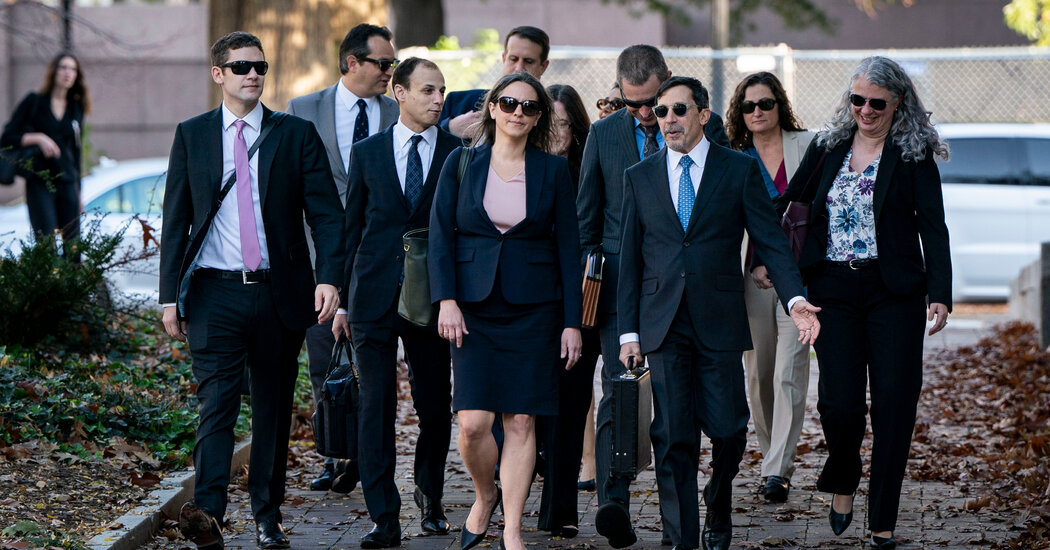
Judge Amit P. Mehta tried poking holes in the closing arguments of a landmark monopoly case as he weighs a ruling that could reshape tech.
The judge overseeing a landmark U.S. antitrust challenge to Google tried to poke holes in both sides’ cases during closing arguments Thursday as he weighed a ruling that could reshape the technology industry.
Judge Amit P. Mehta was presiding over the first day of closing arguments in the most consequential tech antitrust case since the U.S. government sued Microsoft in the late 1990s. The Justice Department has sued Google, accusing it of illegally shoring up a monopoly in online search. Google has denied the claims.
On Thursday, Judge Mehta questioned the government’s argument that Google’s dominance had hurt the quality of the experience for searching for information online. But he also pushed Google to defend its central argument that it isn’t a monopoly because consumers use other companies like Amazon to search for shopping items and TikTok to search for music clips.
“Certainly I don’t think the average person would say, ‘Google and Amazon are the same thing,’” Judge Mehta said.
His ruling — expected in the coming weeks or months — will help set a precedent for a series of government challenges to tech giants’ size and power. Federal regulators have also filed antitrust lawsuits against Apple, Amazon and Meta, and a second case against Google over online advertising.
Before the start of closing arguments in a U.S. District Court for the District of Columbia courtroom, Jonathan Kanter, head of the Justice Department’s antitrust division, approached Kent Walker, president of global affairs at Google, to chat.
Judge Mehta began proceedings by questioning Kenneth Dintzer, the Justice Department’s lead courtroom lawyer for the trial, about innovation in search.
The government has argued that a lack of competition in the online search business — in which, it says, almost 90 percent of all searches are conducted with Google — means Google doesn’t need to invest in the quality of its search experience. But Judge Mehta told Mr. Dintzer that it would be hard to “dispute that search today looks a lot different than it did 10 to 15 years ago” and that some of that change was due to Google’s work.
“It seems to me a hard road for you to go down for me to conclude that Google hasn’t innovated enough,” Judge Mehta said.
The Justice Department also argued that because Google had a monopoly and didn’t face strong competition, it hadn’t put privacy protections into its search engine. The judge interrupted Mr. Dintzer to say there may be a “trade-off” for privacy versus the quality of search. Judge Mehta added that his challenge was how to measure if Google had done enough to protect the privacy of users.
Judge Mehta prodded Google’s lead litigator, John E. Schmidtlein, on the argument that companies like Amazon and ESPN are true competitors to its search engine. He noted that if he wanted to know who the shortstop for the Baltimore Orioles was in 1983, he would most likely use Google.
The judge questioned how it would be possible for another company to beat Google out as the search engine that automatically populates for Apple’s web browser, Safari. He posited that it could be impossible without having billions of dollars to spend to build a competitive search engine and billions more to pay Apple.
Judge Mehta also asked why Google needed to pay to be the default search engine across the web if its product was already better than those made by its competitors.
In the midst of his exchanges with the judge, Mr. Schmidtlein offered a simple explanation: “Google is winning because it’s better.”